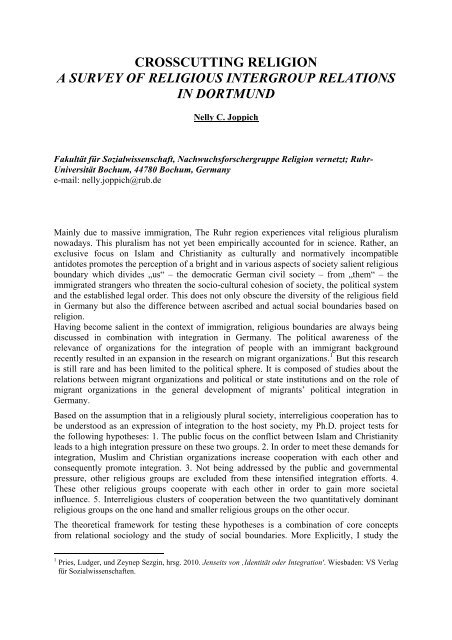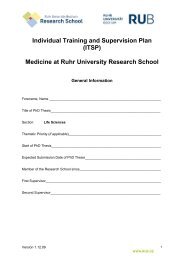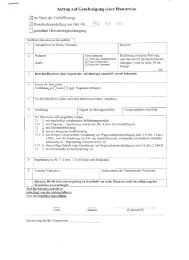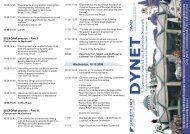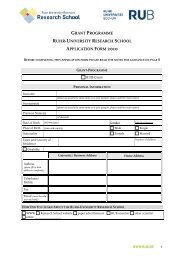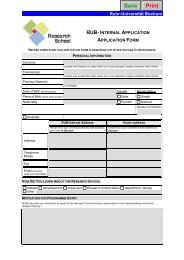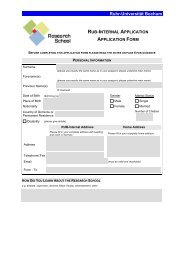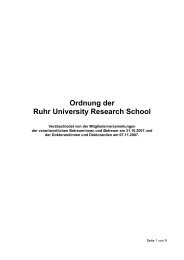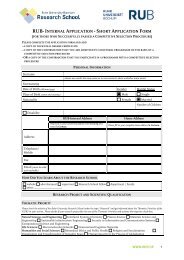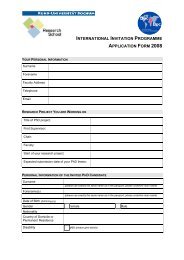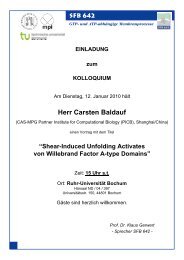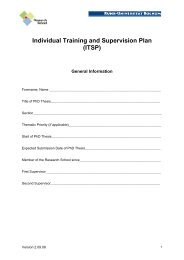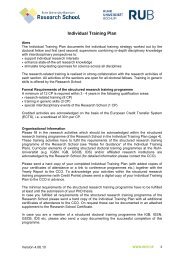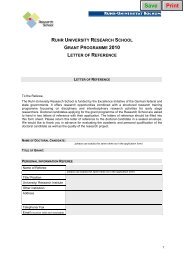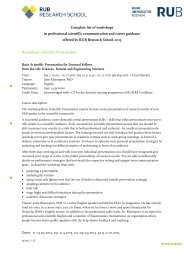Section Days abstract book 2010.indd - RUB Research School ...
Section Days abstract book 2010.indd - RUB Research School ...
Section Days abstract book 2010.indd - RUB Research School ...
You also want an ePaper? Increase the reach of your titles
YUMPU automatically turns print PDFs into web optimized ePapers that Google loves.
CROSSCUTTING RELIGION<br />
A SURVEY OF RELIGIOUS INTERGROUP RELATIONS<br />
IN DORTMUND<br />
Nelly C. Joppich<br />
Fakultät für Sozialwissenschaft, Nachwuchsforschergruppe Religion vernetzt; Ruhr-<br />
Universität Bochum, 44780 Bochum, Germany<br />
e-mail: nelly.joppich@rub.de<br />
Mainly due to massive immigration, The Ruhr region experiences vital religious pluralism<br />
nowadays. This pluralism has not yet been empirically accounted for in science. Rather, an<br />
exclusive focus on Islam and Christianity as culturally and normatively incompatible<br />
antidotes promotes the perception of a bright and in various aspects of society salient religious<br />
boundary which divides „us“ – the democratic German civil society – from „them“ – the<br />
immigrated strangers who threaten the socio-cultural cohesion of society, the political system<br />
and the established legal order. This does not only obscure the diversity of the religious field<br />
in Germany but also the difference between ascribed and actual social boundaries based on<br />
religion.<br />
Having become salient in the context of immigration, religious boundaries are always being<br />
discussed in combination with integration in Germany. The political awareness of the<br />
relevance of organizations for the integration of people with an immigrant background<br />
recently resulted in an expansion in the research on migrant organizations. 1 But this research<br />
is still rare and has been limited to the political sphere. It is composed of studies about the<br />
relations between migrant organizations and political or state institutions and on the role of<br />
migrant organizations in the general development of migrants’ political integration in<br />
Germany.<br />
Based on the assumption that in a religiously plural society, interreligious cooperation has to<br />
be understood as an expression of integration to the host society, my Ph.D. project tests for<br />
the following hypotheses: 1. The public focus on the conflict between Islam and Christianity<br />
leads to a high integration pressure on these two groups. 2. In order to meet these demands for<br />
integration, Muslim and Christian organizations increase cooperation with each other and<br />
consequently promote integration. 3. Not being addressed by the public and governmental<br />
pressure, other religious groups are excluded from these intensified integration efforts. 4.<br />
These other religious groups cooperate with each other in order to gain more societal<br />
influence. 5. Interreligious clusters of cooperation between the two quantitatively dominant<br />
religious groups on the one hand and smaller religious groups on the other occur.<br />
The theoretical framework for testing these hypotheses is a combination of core concepts<br />
from relational sociology and the study of social boundaries. More Explicitly, I study the<br />
1<br />
Pries, Ludger, und Zeynep Sezgin, hrsg. 2010. Jenseits von ‚Identität oder Integration'. Wiesbaden: VS Verlag<br />
für Sozialwissenschaften.


